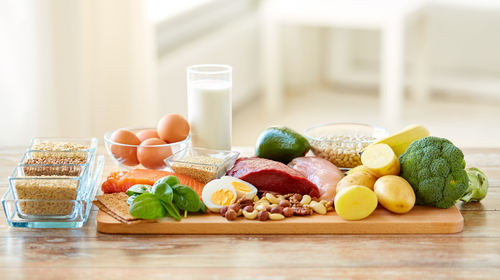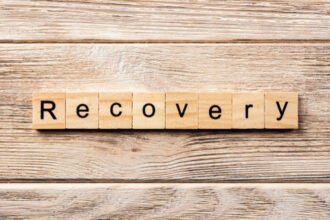No matter how hard you try, it’s very hard to keep your diet completely balanced, especially today, when we have all this junk food and empty calories available at every corner. So, is it possible that you’re not providing your body with all the nutrients it needs? It’s more than possible. Here are the seven nutrients you might be deficient in, so you can keep an eye on them.
Magnesium
According to some estimates, about 50% of the western population doesn’t get enough magnesium from their diet. If you notice any symptoms like fatigue, appetite loss, vomiting or nausea, you might be suffering from a magnesium deficit. In extreme cases, you can even notice tingling and numbness of limbs, arrhythmia and seizures. Foods like nuts, leafy greens and legumes should be on your plate at least a few times a week. Or, you can consider supplements!
Vitamin D
Our bodies produce vitamin D when exposed to the sun’s rays. But, during winter, when the sunlight is scarce, we can easily develop vitamin D deficiency. Some foods like eggs, fish and fortified cereals contain vitamin D, but your best bet is to get out, soak up the sun and grab some supplements.
Calcium
Calcium is crucial for strong bones and muscles, but it also boosts heart health and controls your weight. If you’re an adult under 50, you need 1,000mg of calcium per day, around 1,200mg if you’re over 50, so you see how easy it is to not get enough. Boost your intake of low-fat dairy or if you don’t eat dairy, load up on leafy greens, nuts and supplements. Companies like Bulk Nutrients produce amazing vitamin and mineral mixes that contain plenty of calcium and other essential nutrients. For instance, just one serving of their Vital Pre Mix contains up to 25% of your recommended daily intake of vitamins and minerals. And the product is 100% lactose- and gluten-free and vegetarian!
Fiber
Fiber is crucial for good digestion, lowering bad cholesterol and controlling your blood sugar levels. Plus, fiber is very filling and often found in low-calorie foods which is great for your weight loss. An average adult man needs between 38 and 30 grams of fiber per day, while women need a little less, from 25 to 21 grams. If you think you’re not getting enough of fiber from your diet, you can consider eating more fruits and veggies, as well as high-fiber whole grains with your every meal. Fiber is important for ensuring good digestive health. People who eat plenty of fiber will have better bowel health. Adding beans to your diet several times a week is also great for your digestive system. Ditching white flour bread, sugary cereals and regular pasta for whole-grain bread and cereals, whole-wheat pasta, quinoa, barley, wild rice and cracked wheat will fill you up with nutrients and fiber. Snacking on whole-grain crackers, nuts, seeds and popcorn is a great substitute for candy and chips which are completely devoid of any useful nutrients.
Potassium
Every cell in your body is alive thanks to potassium. It helps keep your nerves healthy, your muscles strong and your fluids balanced. It’s also important for keeping your blood pressure nice and normal. If you suffer from any conditions like hypertension or if you take certain medication, you’re at an even bigger risk of developing potassium deficiency. Both adult men and adult women need 4,700mg of potassium per day, yet only 2% of the population actually gets enough of this essential mineral. Many fresh fruits and veggies are rich in potassium, but if you can’t get it from food, you can turn to supplementation.
Vitamin B12
If you suffer from certain health issues or follow a certain strict diet plan, you might be lacking vitamin B12. Since it’s present in many animal products, vegans and vegetarians are at risk of becoming vitamin B12 deficient. This vitamin is very useful for your metabolic functions, but it also helps other systems in your body and allows them to work as they should. If you don’t have any dietary restrictions, you can find your vitamin B12 in fish, eggs and cheese. There are also foods that have been fortified with this useful vitamin like some types of cereal and plant-based milk.
Iron
Iron is key to a healthy and strong body because it helps produce red blood cells that transport oxygen throughout the body. If you’re not getting enough iron from your diet, you can experience everything from fatigue to muscle loss, body temperature regulation issues and even memory loss! Keep in mind that women tend to be more prone to iron deficiency than men because they lose this nutrient during menstruation. Additionally, your iron levels might further decrease during pregnancy. For that reason, women need 18mg of iron per day while men need 8mg. Foods like beef, lentils and broccoli are full of iron, but you can also snack on cashews and apricots if you don’t want to try supplements.
Conclusion
Now that you know which nutrients you might lack, it’s time to adjust your diet. Consulting with your doctor is a great idea too, especially if you suspect you’re extremely deficient in any of these nutrients.








